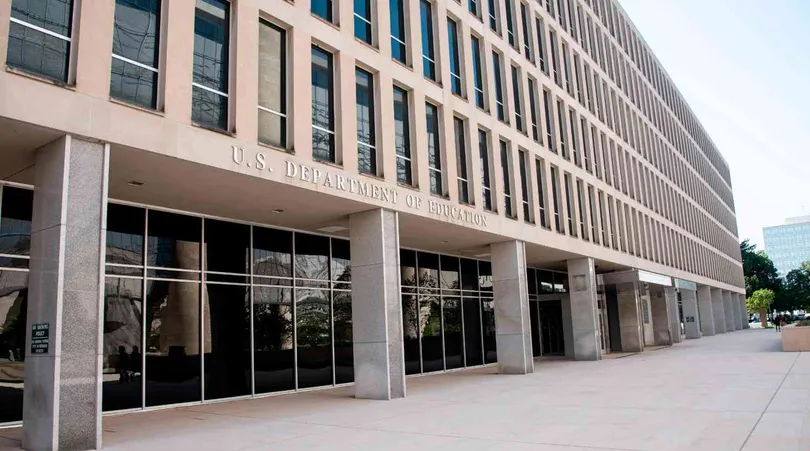In a historic policy shift, former President Donald Trump is pushing for the abolition of the U.S. Department of Education, marking a significant move toward decentralizing federal control over education. The plan, which aligns with longstanding conservative efforts to reduce federal oversight, has sparked intense debates among policymakers, educators, and parents nationwide.
Trump’s Executive Order to Dismantle the Department
According to reports, Trump’s executive order, expected to be signed in the coming weeks, will begin the process of dismantling the Department of Education and transferring its responsibilities to individual states.
- The administration argues that education should be handled at the state and local level, free from federal mandates.
- The move is part of Trump’s broader effort to downsize federal agencies and reduce bureaucracy.
- Federal funding for schools may be redirected to state-controlled educational programs.
New Leadership: Linda McMahon Sworn In as Education Secretary
Amid the planned restructuring, Linda McMahon, former head of the Small Business Administration and WWE co-founder, was sworn in as the new Secretary of Education on March 4, 2025.
- McMahon has expressed strong support for eliminating federal oversight in education.
- In her first statement as Secretary, she vowed to “return power to parents, teachers, and local communities”.
- Her appointment signals the administration’s commitment to overhauling federal education policy.
Impact on Federal Education Programs
The Department of Education currently oversees key federal programs, including student loans, special education funding, and civil rights protections in schools. The abolition of the department raises concerns about:
- The future of student loan programs: If control shifts to states, policies could become inconsistent across the country.
- Potential funding disparities: Wealthier states may have more resources for education, while others could struggle.
- Civil rights enforcement: The Department plays a key role in ensuring equal education access, which may be weakened under state governance.
Backlash from Educators and Communities
The move has already sparked significant protests and opposition. In New Haven, Connecticut, over 200 teachers, students, and community members rallied against the plan, citing concerns over:
- School funding cuts that could lead to teacher layoffs.
- A decline in educational quality due to inconsistent state policies.
- Potential elimination of federal protections for disadvantaged students.
If Trump gets his way and guts the U.S. Department of Education, 7.5 million students with disabilities will lose access to critical special education services funded by the federal government. The American people did not vote for reckless, chaotic attacks on our children and…
The Trump administration’s move to abolish the Department of Education marks a monumental shift in U.S. education policy. While supporters argue it will empower states and local communities, critics warn of increased disparities, reduced funding, and the loss of federal protections. As the debate unfolds, the future of millions of students and educators hangs in the balance.

